Demo Answer: Narrative Writing | English Language for GCSE/IGCSE - Class 10 PDF Download
| Table of contents |

|
| Introduction |

|
| Planning your narrative writing |

|
| Narrative Writing Model Answer |

|
| Unannotated Model Answer |

|
| Summary |

|
Introduction
In Section B of Paper 2, students will have the choice of four titles. Questions 2 and 3 will present descriptive writing titles, while Questions 4 and 5 will offer narrative writing titles. Each option carries 40 marks, and students need to choose either descriptive or narrative. Although descriptive writing may involve elements of narration, and vice versa, it's crucial to distinguish between the two styles and tailor responses accordingly. Students should carefully evaluate all four choices before selecting the one that best showcases their writing skills.
The subsequent guide furnishes a model answer for narrative writing, drawn from a previous paper task. The model answer is segmented into:
- Planning your narrative writing
- Narrative writing model answer
- Unannotated model answer
- Summary
Planning your narrative writing
After selecting your title, allocate 10 minutes to plan your writing.
For instance, consider the task: "Craft a narrative involving an injustice."
Utilize a five-part narrative framework to organize your response: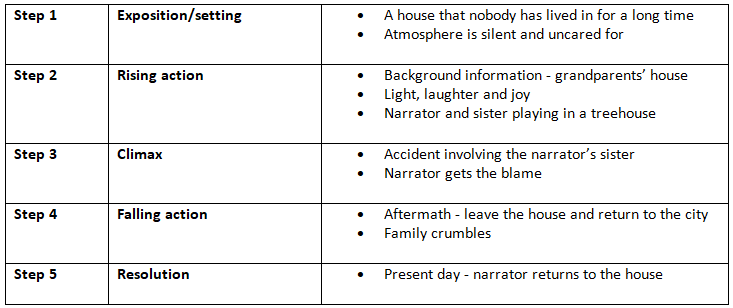
Narrative Writing Model Answer
The following exemplar illustrates an exemplary response to the aforementioned task:
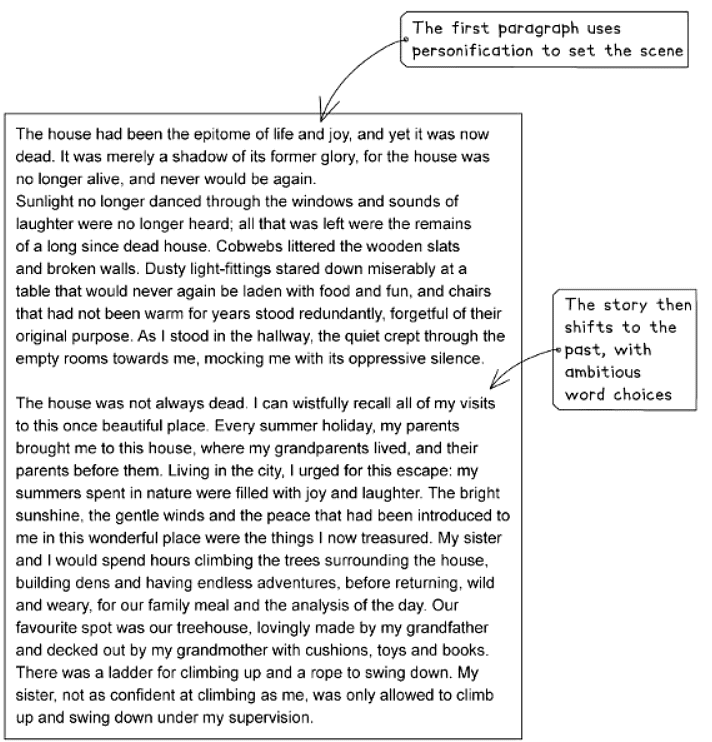
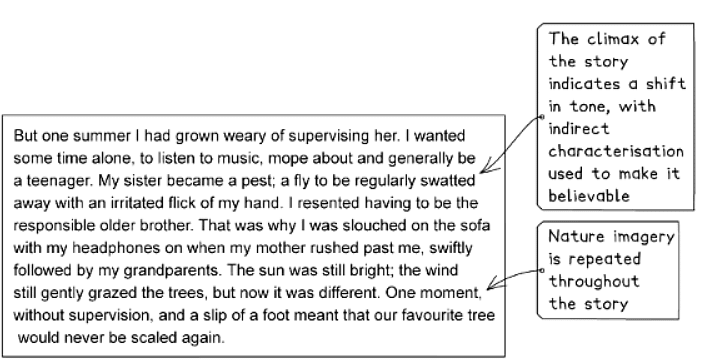
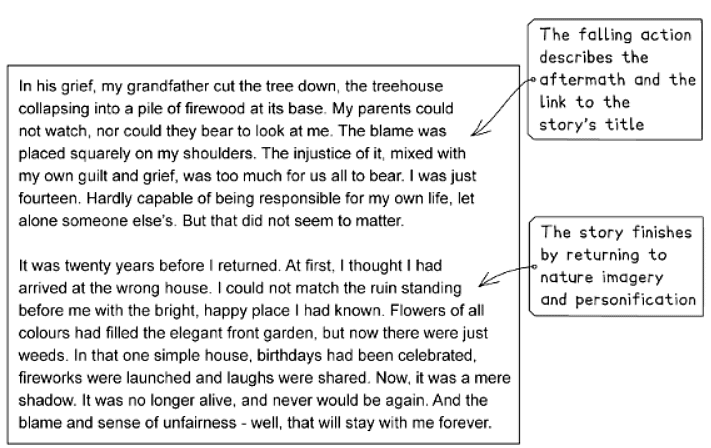
Unannotated Model Answer
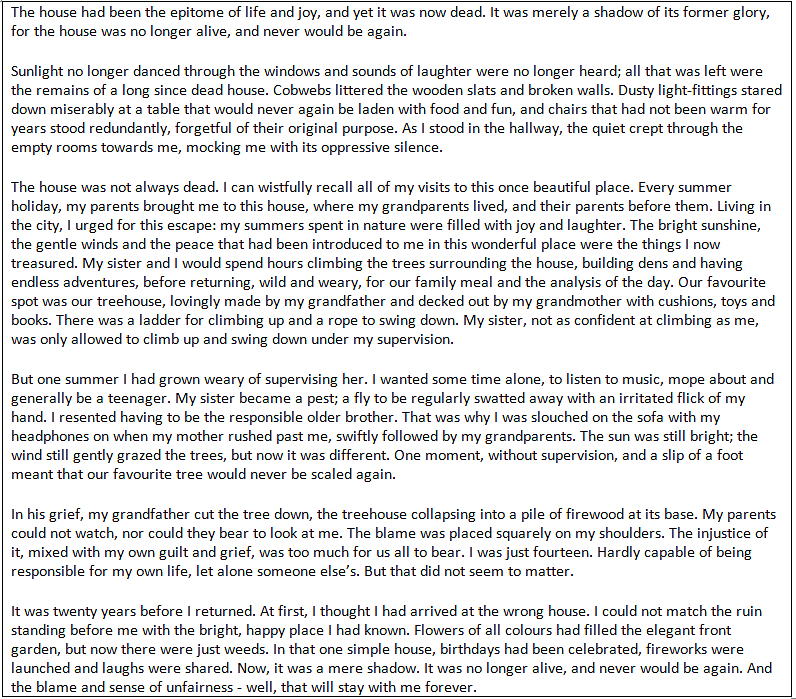
Commentary:
- The first paragraph employs personification to establish the setting
- The narrative transitions to the past, utilizing impactful vocabulary choices
- The story's climax signals a shift in tone, employing indirect characterization for believability
- Nature imagery recurs throughout the narrative
- The falling action describes the consequences and ties back to the central theme of "injustice"
- The story concludes by revisiting nature imagery and personification
Summary
- Remember to carefully plan the sequence and "flow" of your story to maintain coherence and engagement.
- Limit your story to one primary setting and avoid introducing more than two main characters to prevent confusion.
- Diversify the lengths of your sentences and paragraphs to create a dynamic and engaging narrative.
- Incorporate vivid imagery and literary devices to enhance the vividness and impact of your story.
- Employ indirect characterisation techniques to develop realistic and believable characters.
- View your story as a cinematic "scene" to focus on immersive details rather than exhaustive character backgrounds.
- Engage readers with descriptive "showing" methods such as sensory imagery and rich vocabulary.
- Ensure technical accuracy in your writing to maintain credibility and precision.
|
17 videos|45 docs
|


















